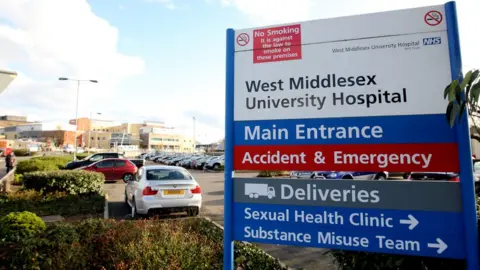Protein drinks should carry warning after boy died, says coroner
 PA Media
PA MediaHealth warnings should be added to protein drinks after a boy died from a rare genetic disease triggered by drinking one, a senior coroner says.
Rohan Godhania, 16, of Ealing, fell ill on 15 August 2020, and died three days later at West Middlesex Hospital after suffering "irreversible brain damage", an inquest has heard.
His organs were donated before the cause of the illness could be solved.
A professor of paediatrics called such warnings "potentially life-saving".
A post-mortem examination could not initally identify the boy's cause of death from a rare disease, ornithine transcarbamylase (OTC) deficiency, an inquest at Milton Keynes Coroner's Court in Buckinghamshire previously heard.
The disease prevents the breakdown of ammonia, causing it to build up to lethal levels in the bloodstream, and can be triggered by a protein load, the court was told.
'Missed opportunity'
Coroner Tom Osborne said: "Concerning these protein drinks, my preliminary view about them is that I ought to write to one of the regulatory authorities that some sort of warning ought to be put on the packaging of these drinks because, although OTC is a rare condition, it can have harmful effects if someone drinks [one] and it causes a protein spike."
Finbar O'Callaghan, professor of paediatric neurology at the Institute of Child Health, University College London, agreed intervention was needed, describing it as "potentially life-saving" at the hearing.
Lawyers acting for Rohan's family questioned whether opportunities were missed to screen him for ammonia prior to his death, despite this being recommended.
They suggested ammonia testing may have identified he was suffering from a urea cycle disorder, such as OTC, the court heard.
Prof O'Callaghan said if an ammonia test had been carried out on the day Rohan was admitted to hospital, it was "probable" he would have survived, agreeing with a suggestion by the family's lawyers that it was a "missed opportunity".
He was also critical of the decision by a specialist hospital - known as a tertiary centre - not to accept a referral for the 16-year-old to their paediatric neurological team because the West Middlesex Hospital had classified him as an adult patient.
The inquest continues.

Follow BBC London on Facebook, Twitter and Instagram. Send your story ideas to [email protected]
